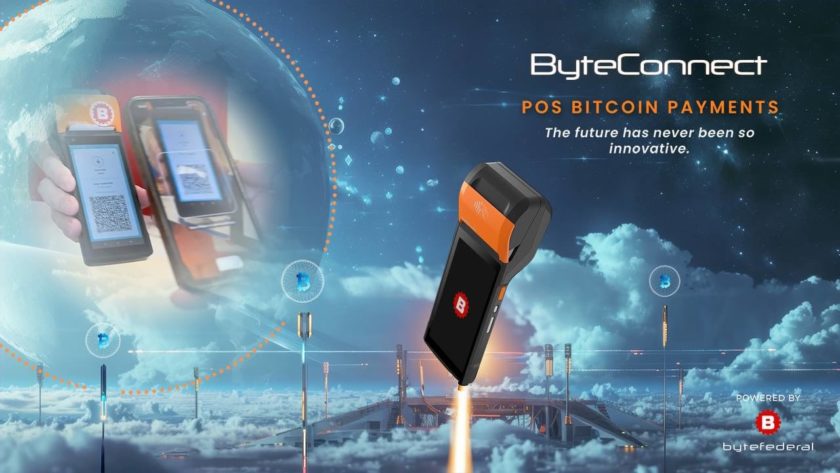Inside SM Aura, one of Metro Manila’s many sprawling shopping malls, you’ll find a wonderfully whimsical “co-baking” space called Bakebe. Pronounced Bake-be, the idea is borrowed from a concept store in Hong Kong that uses an app to teach guests how to bake the cake of their dreams. Upon arrival, you’re greeted by a gaggle of electric mixers straight out of Barbie’s Dreamhouse, and pink-frosting walls lined with big glass jars, each brimming with edible treasures: chocolate buttons, rainbow sprinkles, mini meringues, cookie crumbles and more.
And now, to top off your magical Bakebe experience, you can pay using magical internet money.
Leah Callon-Butler, a CoinDesk columnist, is the Director of Emfarsis, a consulting firm based in Southeast Asia that represents play-to-earn sector clients including Animoca Brands, Yield Guild Games, Blockchain Game Alliance and others.
The Nextperience Group, Bakebe’s parent company, represents a portfolio of imaginative businesses catering to everything from kids’ birthdays to team-building events. In mid-July, it began accepting an Ethereum-based utility token called Smooth Love Potion (SLP) for payments. Since then, it has processed 50 online bookings totaling PHP 150,000 ($2,980) in revenue. Co-founder and CEO Nikko Que believes it would have closed many more sales had Manila not been forced back into lockdown at the end of July.
It’s not the only merchant in on SLP, either. A quick quiz on social media turns up a bunch of advertisements for all sorts of things you can buy in the Philippines with SLP. Those include a pair of new kicks at SneakyX; a car service at Adz Garage, a polishing at Ecowash; insurance renewal at Divinagracia Insurance Agency; a test for COVID-19 at Swab Republic; a dermatitis treatment at The Healthician Clinic; an outfit for your toddler at Little Blossoms; a gift from SOLID TOYS; a laptop upgrade at Meron Ako; a massage chair at ZION; a milk tea at Chi Figata; a plate of dumplings at Mama’s Boys; and a session with online fitness coach, The Architect.
“The minting and acquisition of SLP has become an everyday task for a lot of people, so it’s useful to be able to spend it as an everyday currency,” said Joseph Moore, Que’s business partner. He’s referring to the obscure ERC-20 token originating from within the blockchain game, Axie Infinity, which has become a source of livelihood for many Filipinos.
The Bakebe boys say their customers tend to assess the price of SLP in terms of the effort it would take them to earn it. If a baking experience costs 150 SLP, they might say, “Oh, 150 SLP, that’s just my daily quest.”
Living in the Philippines, I’ve seen this tendency to value SLP in relation to real-world items, too. It seems the player community cares less about how much SLP is worth in terms of PHP or USD. A friend of mine, on his first day of playing Axie, excitedly told me he had earned three Chicken Joys in just a few hours. If you already know that Chicken Joy is a popular item on the menu at the much-loved fast food store in the Philippines called Jollibee, you’ll also know that this is a highly relatable and culturally relevant unit of account, understood instantly by Filipinos everywhere.
The birds and the bees of NFTs
To explain the purpose of SLP in Axie Infinity, I’ll need to give you a lesson on “the birds and the bees” of non-fungible tokens (NFTs). You see, Axies are NFTs with the ability to procreate, and if you want to get a couple of adult Axies in the mood to make a baby, SLP works like Barry White and candlelight.
To acquire SLP, Axie owners pit their NFT pets against one another, and whoever wins is rewarded with little vials of the digital aphrodisiac as a prize. But if you’re not into breeding Axies, you can sell your hard-earned SLP on an open market in exchange for other cryptocurrencies.
In some countries, the trade volume for SLP is so high that progressive platforms are enabling users to exchange the token for the local currency. And here in the Philippines, a growing number of local merchants have gone a step further, with sellers willing to accept micro-doses of the stuff as payment for goods and services.
They do it all via a dedicated wallet, the Ronin wallet, which is basically MetaMask for Axie’s sidechain and allows users to conduct up to 100 free transactions every day. At the time of purchase, merchants take it on a case-by-case basis, checking the price of SLP on Binance before providing their customers with a timely conversion rate. Other sellers – specifically, those who are willing to adopt a win-some, lose-some approach – will dictate a fixed selling price that sits somewhere between SLP’s lowest and highest value for the month.
“There are more Filipinos with Ronin wallets than there are Filipinos with credit cards,” Que said to me via a Zoom call, with a twinkle in his eye. He was being cheeky, of course. While Axie’s growth in the Philippines has gone supersonic over the past few months, the rate of Ronin adoption isn’t that prolific, at least not yet.
But it may not be too far off. A Ronin-to-Ronin wallet transfer certainly offers a handy way for the underbanked to pay online. And while it probably isn’t how the Philippines’ central bank envisioned this to happen, it’s a big step toward the bank’s goal of the Philippines becoming a “digital-heavy, cash-light society” with 50% of all transactions being digital by 2023.
Volatility schmolatility
Critics will scoff at the idea of an obscure and highly volatile in-game reward token being accepted and used widely for payments. We’ve heard plenty about that of late, what with the International Monetary Fund on its soapbox knocking El Salvador’s decision to adopt bitcoin as legal tender. But the “suitability” of any tender is highly subjective, and in the developing world, where many economies are still reeling from the economic fallout of COVID-19, volatility is a desirable problem to have if it means you’ve got paying customers. Volatility is a challenge that you can proactively manage within your business; a broader economic recession is probably not.
For the merchants that do choose to accept SLP, theirs is a savvy response to a newly cashed-up consumer segment looking to splash out. With the average player earning around 4,000 – 6,000 SLP ($520 to $780 at today’s prices) in mid-July, and more than half of Axie’s one million daily active users hailing from the Philippines, this represents a fast-growing group of people who are doing financially better than most amid a long and brutal economic downturn. The merchant seeking to serve them may secure a competitive advantage by allowing customers to pay for goods and services with the same currency they earn their income.
The alternative is cumbersome, to say the least. Players must first convert their SLP into a more digestible crypto, such as ether, via a decentralized exchange, such as Uniswap. From there, they can send to a centralized and locally regulated exchange with the ability to interface with fiat. And while plenty of early adopters were willing to jump through those hoops, it wasn’t easy or convenient for them, and they weren’t overjoyed about the fees that ate away at their pay every step along the way.
In the Philippines, there are a couple of solutions that have popped up to streamline the process, namely BloomX and Binance P2P, which offer an SLP to Philippine peso (PHP) trading pair. But if merchants will happily accept SLP at the point of sale, it removes the need for players to convert SLP altogether.
Smile Craft Dental Centre in Mandaluyong, Metro Manila, has already had five patients pay with SLP since it began accepting it in July. “We have seen in many Axie Infinity groups that some scholars have no experience with trading and cryptocurrency and are finding it difficult to cash out their SLP,” said Nikko Alfonso, a chat representative at the clinic. He’s referring to those Axie players who leased the NFTs they need to play, rather than buying their own, and as such, haven’t yet learned the ins and outs of handling crypto for themselves – a process that might feel like having teeth pulled for a noob with no idea what to do. “We are giving them another way to exchange those SLP, while at the same time, keeping their teeth healthy,” said Alfonso.
It’s important to note that these merchants are not exactly random. Almost every merchant whom I spoke with was an avid Axie breeder, allocating a decent chunk of their company’s SLP revenue toward the cost of breeding more NFT creatures. In their eyes, if SLP loses value against the Philippine peso, it still retains its utility as an Axie love drug. In fact, that’s its primary purpose. Unlike a paper banknote, or even a bitcoin, SLP exhibits inherent utility because it can always be used to breed more Axies, making it akin to other goods-as-money payment tools with multiple uses that have been used over time like gold, rice, rum and cigarettes.
Of course, SLP’s utility isn’t much of a consolation prize if you’re not in the business of breeding Axies, but that only reiterates the authenticity of this community and the real, organic demand for the token. In speaking to each vendor, I was struck by the fact that none was price-obsessed. They weren’t looking for arbitrage opportunities. They weren’t moving out of their SLP position at the end of each day, converting SLP to something more stable. They’d hardly noticed SLP’s recent price dip (it’s currently sitting at $0.13, down from an all time high of $0.36 in May and July), and they said again and again that they were prepared to hold the token until they need it for breeding, or until they see the price bounce back, however long that takes.
As Axie’s SLP takes on a life of its own, it’s caught the attention of the Philippines’ tax office, too, which recently took the opportunity to remind everyone of their reporting obligations. In my mind, that only brings greater legitimacy to the play-to-earn movement, which is driving the usage of cryptocurrencies by everyday people in a way that the world has rarely seen. For these next-gen users, SLP is the elixir of community development, demonstrating that the definition of money is fluid and value is in the eye of the (be)holder.
Special thanks to Chiin Gandia for her help to interview the merchants that appear in this article.
Correction (Aug. 26, 2:17 UTC): AXS is Axie Infinity’s governance token, not SLP.




